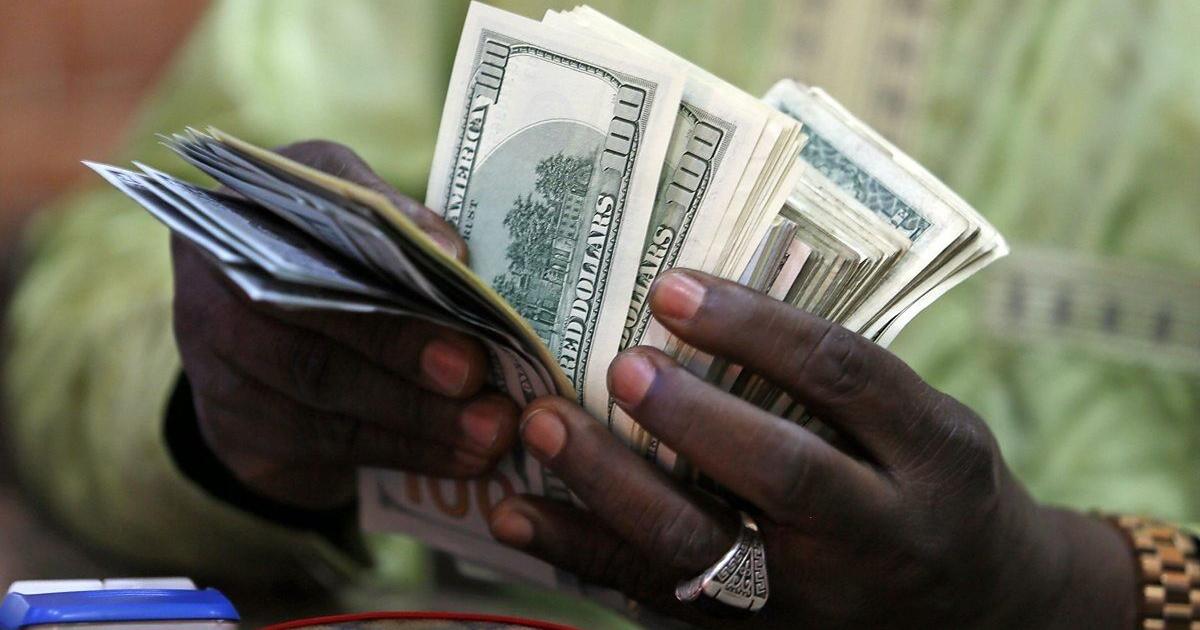Regardless of what one thinks, views or says about this Government, the Minister of Finance has exercised a laudable degree of common sense concerning the foreign exchange issue in Trinidad and Tobago when he wisely said that allowing market forces to determine the exchange rate will escalate the cost of living and will not in any way increase the availability of United States dollars.
What will certainly happen is that more TT dollars will be required to purchase the same quantity of US dollars, thereby making the cost of everything rise, more specifically, wages, goods and services, fuel, inflation, school maintenance, transportation costs, as well as the costs of basic utilities.
There have been very many economists and other commentators who look at forex from a purely theoretical or accounting standpoint and are suggesting that the US dollar has already devalued owing to black market prices or that Trinidad and Tobago, a signatory to the International Monetary Fund, should abide by the IMF programme, totally ignoring the fallout from such an initiative. It is curious if not laughable that the black market supersedes the exchange rates provided by the banks and finance gouses.
Unquestionably, forex issues are not easily solvable, but Trinidad and Tobago possesses the necessary resources and certainly the knowledge to address this unsavoury issue. There are the American Chamber of Commerce, Trinidad and Tobago, the Trinidad and Tobago Chamber, the Chaguanas chamber, the Couva/Pt Lisas chamber, the Sangre Grande chamber, the Greater San Fernando chamber, the Greater Tunapuna chamber, as well as the Tobago chamber, the European chamber of Trinidad and Tobago and the Energy chamber. Almost, if not all, businesses are members of at least one of these chambers. Yet, none of them have come together as one entity to talk with the Government, economists and finance personnel from The University of the West Indies—as well as have the media present to avoid “he say/she say” issues that may arise—to chart a way forward.
True, one or two of them have proffered views, but these are simply: “provide more forex for businesses.” It seems that they have forgotten the moral of Aesop’s fairy tale, “The Bundle of Sticks”, that it is far easier to break one stick than a bundle of them. Or is the lust for power and position more important to them than solving the forex issue?
What are the solutions—short, medium and long-term?
The Government provides subsidies to the manufacturing sector to create and keep jobs, as the country is being told. What has the Government demanded in return? Raw materials—which are mostly foreign, if not United States-based—are required, but how much forex is given, and moreso, generated for Trinbagonians? What have the various chambers done regarding this issue? The various chambers represent business, but is it “none of their business” if they discuss with these businesses? If they have, who knows of the proposals?
A university is supposedly a cradle of knowledge, but what have researchers and lecturers done to address the issue? They are certainly vociferous regarding salary, it seems, but what of Trinbagonians?
Unquestionably, this existing Government “sees no evil, hears no evil” and certainly does not “talk evil”, so it is “pulling teeth” to get it to listen to reason! However, whilst it may be difficult and frustrating, it is not impossible to do, and persistence will eventually pay off.
United States dollars will eventually run out or be exhausted, despite foreign loans and taxes, if not addressed. Providing more US dollars to meet existing demand is simply addressing the symptoms, which, though required at this moment, does not address the source of the forex shortage, because a strong and sustainable economy will enhance the current standard of living, not to mention create more jobs, especially in the current situation where university graduates are jobless.
It is more than enough time for the Government, university personnel, businesses and the chambers to meet and discuss solutions to grow and earn foreign dollars. Dependence upon energy or energy-related industries is not a wise decision, especially when the Petrotrin refinery was mothballed and reusable energy is accelerating worldwide.
Sure, the existing Government, so far, is not listening; but a prolonged and vociferous effort will force them to listen and take action for the betterment of Trinidad and Tobago. The positive from this initiative will keep the existing Government in power, as well as create profitable sectors in the economy, thereby ensuring a sustainable economy, leading to the supply of forex exceeding demand!
Maturity, absence of ego and an acknowledgement that “all hands must be on deck” will go a long way on the road to economic recovery.
Instilling fear and displaying pomposity are anathema to good governance. Will the powers-that-be rise to the occasion for the betterment of Trinidad and Tobago or will narrow interests be served?
There is lots of talk but no predominant actionable solutions.
Which entity will champion the initiative to meet and discuss solutions?

